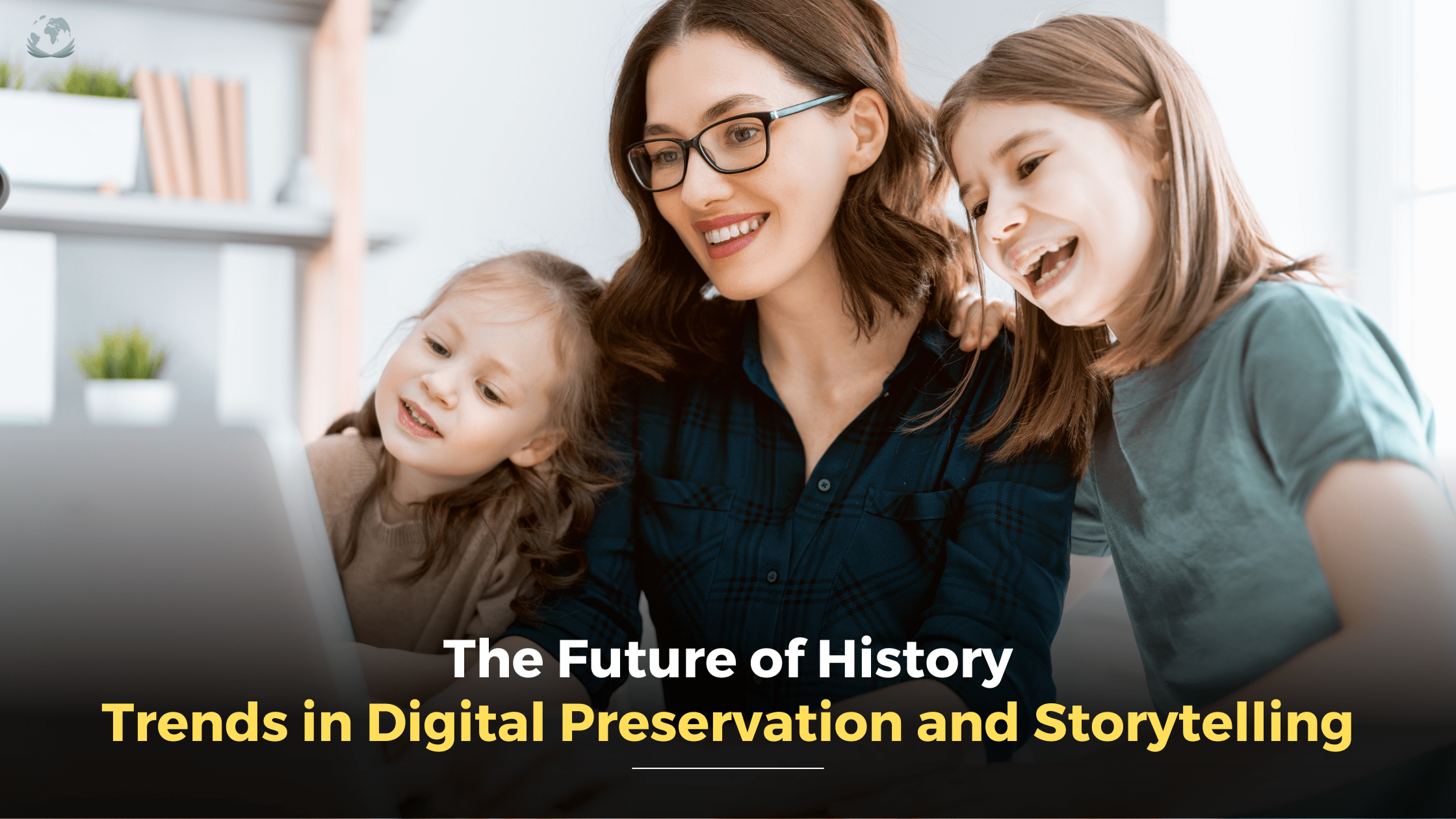The Future of History; Trends in Digital Preservation and Storytelling
We believe that History Chip is the future of history. But, so what does that mean, the future of history? We envision the future of history, thanks to the internet, jam packed with the stories of ordinary people from all over the world. It’s a history that is no longer told from a few narrow perspectives, excluding the lives of 99% of us. Our past and present history is a dinosaur. It's told by and about the winners, the powerful, the rich, educated, wealthy, western men. Don’t get me wrong! I insist there is nothing wrong with the history of the rich and powerful, so long as the history of the rest of us has equal weight and representation. Simple question, can history be true if it excludes, let’s just pick a group, grandmothers? How about taxi drivers? plumbers? musicians? Chinese people? In order for history to be true, it needs to include all of us. We all matter and we all have stories. Mention 9/11 and everyone has a story about where they were on that day, and all of their stories together expand our understanding of the events of the day and the impact of those events.
The past or present of history? That, dear reader, is history that is not as complete as it must be. History has been written from the point of view of a narrow group of people. Again, these may be very well meaning and intelligent, well educated people. But history, history as we know it, the past of history and the present of history, has been written without the input of large groups of people. Women, native peoples, incarcerated people, differently abled people, refugees, people from developing countries, people of color, all sorts of groups of people have been excluded from the history of our world. This gives us skewed understandings of what life is like for the rest of the world. We might not even understand what life is like in our own neighborhood, our own town, or our own country, because we don’t know the stories of our neighbors.
May is Jewish-American Heritage Month, Mental Health Awareness Month and Military Appreciation Month. The fact that we recognize the need to honor these segments of society clearly demonstrates that there is a need to honor the impact of people in various communities for their place in society, and every single month is set aside somewhere to honor the needs of a particular group of people to be recognized. And there are increasing numbers of projects collecting stories to enhance the history of various communities that have not been included in history books. There are numerous Oral History Collections in libraries, university collections, and historical societies. These oral histories are formalized in that they are recorded with an interviewer and an interviewee. The stories are edited and preserved. These are wonderful, often, in depth documents of the lives of people we might never have known were it not for these careful recordings. And these are vital elements of the pursuit of digital preservation
History Chip is taking this a step further into the forefront of digital storytelling as a key strategy for transforming history to make it more complete, accessible and truthful. We invite storytellers to share their own stories without the formalities of Oral History practices. We do this to open wide the doors to collecting the voices of as many storytellers as possible. Because we invite all people to testify to their own truth, what they see out their windows, what they have experienced, without filters or editors, History Chip provides that open door for all people to be a part of history. History by the storytellers is the raw data that historians can then use to research history.
History is not science. It is not quantifiable. It is not something you can replicate over and over in a lab. Its truth is something historians dig for over and over and constantly need to reexamine as new information comes forward. It is so clear in the discovery of new dinosaurs. Each time a new dinosaur is discovered the history of dinosaurs is rewritten, old notions are tossed out the window. We discover that dinosaurs are more related to birds, and that T-Rex had tiny arms, and so on and so forth. We discover new information that transforms our understanding. In examining the history of humans, we are constantly battling our preconceived notions and prejudices to determine more clearly truth writ large. Treating history like a science, as though it is objective rather than subjective, as though it has been handed down from the gods - as gospel - is a betrayal. It betrays those it omits from our larger story and it betrays those who are indoctrinated as to what might be held in good faith, or might actually be propaganda. We must be able to accept new historical information, just as we do new dinosaurs. Let’s be curious about our past, just as we are with dinosaurs, and maybe the dinosaurs can remind us that it’s time to move history out of the stone age and into the future.
History Chip is a product of and in the forefront of digital preservation and storytelling. This was not feasible prior to the internet. And so, as we ride this wave, we also lead in opening storytelling to the world. By inviting every human on the planet to participate we are marking our own trend in digital preservation and storytelling. Born out of the betrayal of the dogma of history, we are revolutionizing history to make it more truthful. Because all of our stories matter and deserve to be a part of history.

